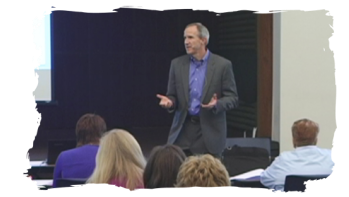
A lot of people would argue that stories are important for any public speaker. Tell stories, they say, to keep the audience engaged.
All well and good. I've seen it happen time and time again in my presentations before business groups, keynote dinner speeches and seminars. There's something about a story that grabs people's interest and causes them to hang on through the story to get to the "happily ever after."
But there's a catch. Many good stories could be made much better if you keep a few strategic and important points in mind.
All well and good. I've seen it happen time and time again in my presentations before business groups, keynote dinner speeches and seminars. There's something about a story that grabs people's interest and causes them to hang on through the story to get to the "happily ever after."
But there's a catch. Many good stories could be made much better if you keep a few strategic and important points in mind.
First, the best stories are personal. They're your stories, things that happened to you.
Second, the best stories present a challenge or problem that you faced and reveal what you did about it.
[Follow me on Twitter: @wesbleed]
Third, the best stories show you coming through with a solution or some kind of victory, however small.
Fourth, the best stories "show" the audience by vivid descriptions and even a bit of acting, pacing and facial expressions.
Fifth, the best stories reveal wisdom, a lesson learned. Stories that make us laugh are wonderful, but they leave us empty if there's no point.
If you can include these five points in your stories, you automatically raise the level of engagement of your audience. It's not easy. You have to reveal something about yourself. You have to be willing to stand before an audience and show them some of your faults or missteps.
The end result, however, can be tremendous. People may not remember much from your 20 minute speech, but chances are they'll remember your stories.
My new presentation: Quantum Communication.
Second, the best stories present a challenge or problem that you faced and reveal what you did about it.
[Follow me on Twitter: @wesbleed]
Third, the best stories show you coming through with a solution or some kind of victory, however small.
Fourth, the best stories "show" the audience by vivid descriptions and even a bit of acting, pacing and facial expressions.
Fifth, the best stories reveal wisdom, a lesson learned. Stories that make us laugh are wonderful, but they leave us empty if there's no point.
If you can include these five points in your stories, you automatically raise the level of engagement of your audience. It's not easy. You have to reveal something about yourself. You have to be willing to stand before an audience and show them some of your faults or missteps.
The end result, however, can be tremendous. People may not remember much from your 20 minute speech, but chances are they'll remember your stories.
My new presentation: Quantum Communication.


 RSS Feed
RSS Feed
